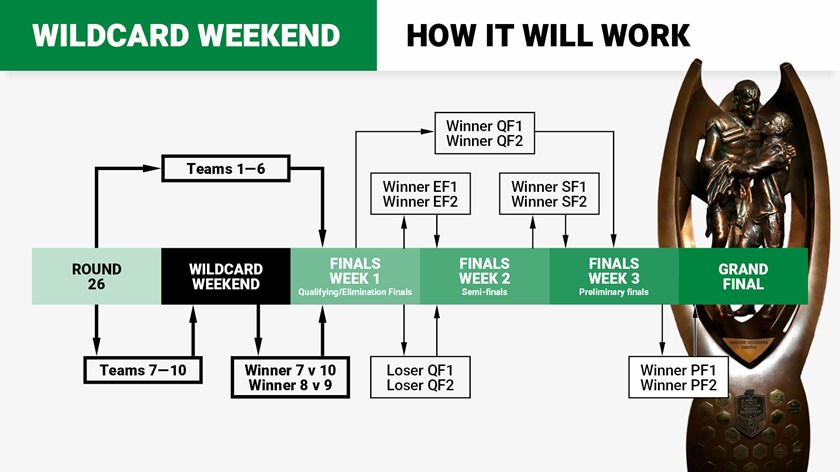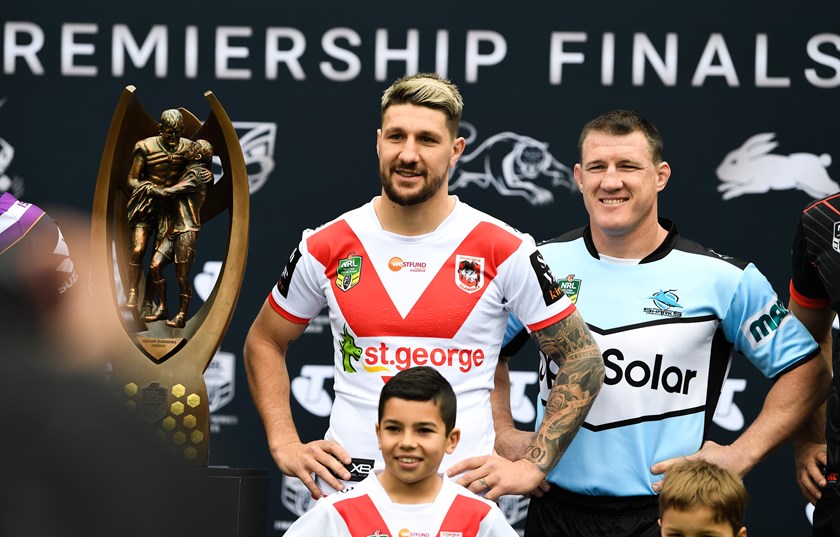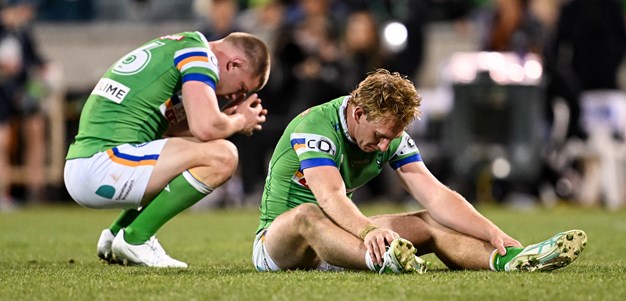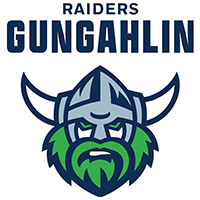NRL clubs and broadcasters have been briefed on a proposal to introduce a "Wildcard Weekend" as part of a new finals system that could be introduced as soon as next year.
Under the concept, which was outlined by NRL head of elite football operation Graham Annesley to club CEOs on Monday, the teams finishing ninth and 10th at the end of the regular season would be given a chance to qualify for the finals by beating the seventh and eighth ranked teams.
The top six teams would have the weekend off, while the team finishing seventh plays team 10 and the eighth-ranked team meets team nine in sudden-death play-offs.
If the Wildcard Weekend concept had been in place last season, ninth-placed Wests Tigers would have played the eighth-placed Warriors and the 10th-placed Raiders would have met the seventh-placed Dragons.

The finals series would then kick off in its current format, with the top four playing in qualifying finals and the teams finishing fifth and sixth playing elimination matches against the winners from Wildcard Weekend.
It is anticipated that the new concept would benefit clubs financially by increasing crowds and television audiences at the back end of the season when teams are no longer in play-off contention.
According to data provided by the NRL, the number of "dead" matches – those in which one or both teams could not make the finals – have been increasing each season and were at a record high of 36 in 2018.
Episode 1 - Moses Mbye and Brad Arthur
The average number of dead matches across the past 11 years is 23 per season - or 12 per cent of the 192 Telstra Premiership fixtures each year.
However, if the Wildcard Weekend concept had been in place last season that number would have been reduced to just eight and an average of 14 per season since 2008.
Those matches with no bearing on the final eight resulted in an average decline in attendances of 3,300 per match – costing home clubs about $80,000 per match in gate receipts.
Television audiences also decreased by eight per cent for dead games.
Annesley, who has returned to the NRL this season after a stint as Gold Coast CEO, said the proposed format would keep fans engaged for longer during the season and benefit clubs financially.
"I think at the Titans last year we were probably done and dusted by very early in the second round," Annesley said.
"You often hear clubs say mathematically we can still make it but mathematically means you have to win every game.
"If you've missed the eight for multiple years, trying to get members to re-sign for the following year can be difficult so if this is a way of keeping that engagement and that involvement from everyone associated with the game it is at least worth considering."
The Wildcard Weekend system will benefit teams who are impacted by heavy injury tolls early in the season and may also place more emphasis on recruitment before June 30 as clubs try to sign a player who can help keep their play-off hopes alive.
It is anticipated that the ARL Commission will look more closely at the proposal in coming months after feedback from clubs, fans, broadcasters and the RLPA and if there is support at the highest levels of the game it could be introduced from 2020.
"There has been some discussion with the broadcasters and I think that they are at least open to the idea," Annesley said.

"I think the clubs were open. We just gave them an overview and after the phone hook-up we sent them some documentation to have a look at. We've asked them to talk to their people and come back to us within a reasonable time.
"We will probably start to get some feedback in the next week or so and we will certainly be able to assess public opinion over the next few days I would think.
"In terms of player welfare and workload, teams getting a week off before they play the finals is obviously beneficial to them. Yes, four teams will potentially play one more game, but you wouldn't think under normal circumstances they would go as deep into the finals as the other teams."














